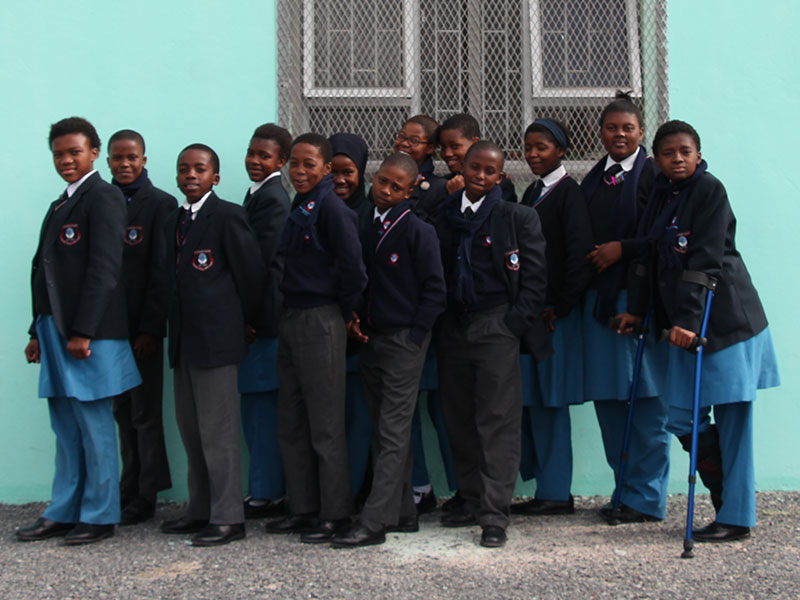Alinah Mabaso is an orphan, living in a rural community in the south of Johannesburg. She is one of millions of ordinary South Africans who listened to President Jacob Zuma’s State of the Nation Address. This is her response.
Dear South Africa
His Excellency, President Jacob Zuma, presented the State of the Nation Address (SoNA) to a joint sitting of the two Houses of Parliament on Thursday. His speech – themed “Following up on our commitments to the people” – was a look back on government’s achievements over the past year. He also laid out the leadership’s action plan for the coming year. I sat listening to his address, huddled around a radio in a shack that I share with my six brothers and sisters.
I listened intently to the President’s words as he pledged his cabinet’s commitment of investing in our country, so that it becomes a better place for all – an ideal we as a nation have been striving for. As an orphan living in South Africa, that ideal has not yet been realized and as such, I would like to bring a few pertinent issues to your attention.
Have you ever gone to bed hungry and tired or worried about where you will find food for your siblings tomorrow? This is my daily reality.
South Africa has one of the highest orphan rates in the world. According to UNICEF, there are an estimated 3.7 million orphans in South Africa – close to half of them have lost their parents to AIDS-related diseases and there are many more children living with sick and bedridden caregivers. About 150,000 children are believed to be living in child-headed households.
I am one of these children.
Both my mother and grandmother died due to HIV/Aids related illnesses, leaving me to care for my four siblings and my sister’s children.
We live in a two-sectioned zinc shack. Our home is not adequate to withstand the extreme weather conditions. During these past few weeks where the temperatures reached close to 40 degrees Celsius outside, we were forced to sit outside under a sheet for shade because inside the shack the heat was too unbearable.
In our squatter camp, we are fortunate to have access to clean water. There is a communal tap, shared amongst no less than ten other households. We often have to queue for hours to get a chance to fill up our buckets and water bottles because of the volume of people in need of this basic necessity.
Although we have electricity wires, we do not have any power because the cables were stolen a long time ago. It has been months since we lodged the complaint with the local municipality. We are still waiting.
Food is a problem for our family. There were many days and nights when we forced ourselves to go to bed on an empty stomach because we did not have any money to buy bread. Although our neighbours and some elders in the community tried to help us, I often felt very guilty accepting their kind gesture because I knew they too were struggling.
Drugs, prostitution and petty crime have become a common occurrence in our squatter camp. I am very frustrated because my younger brothers and sisters cannot be children. With a shebeen on every corner, there are so many drunken people loitering the streets.
The loss of my parents and grandmother has been traumatic. I had to grow up very fast because we lost our caretakers, our protectors. My siblings had to walk very far to school on their own and I feared that they would be abused and exploited.
I could go on for days describing the conditions we are living in; but I always believed that God had a greater plan for us all.
Today, I am working as a lifestyle advisor at the Osizweni Centre in Ennerdale, teaching vulnerable people how to live healthier lives. It was through the support of organisations such as Islamic Relief South Africa (IRSA), that I was able to lift my family out of poverty.
With the guidance and support of their trained community care workers; I found the strength to complete my education while caring for my siblings. Our household is also fortunate because the younger children are rights holders [beneficiaries] of Islamic Relief 1-2-1 Orphan Sponsorship programme. Through this programme, our household receives a monthly food hamper with the basic essentials we need to survive and the children’s school fees are subsidised.
During last night’s SONA, not one mention was given to plight of orphans and vulnerable children in South Africa. While I understand that we are a ‘minority,’ I often hear our country’s leadership talk about us – the youth – as the future leaders of this country. My concern is that if we are not on the government’s development agenda, then who is truly championing our cause?
The media keeps telling us that racism and inequality are the root causes of South Africa’s social problems, which we will ‘never’ overcome; but I disagree. My family and I have lived through some of the worst experiences. We survived thanks to the help of organisations like Islamic Relief who works to alleviate the suffering of the poor and vulnerable regardless of race, political affiliation, gender or belief.
Former President Nelson Mandela once said: “Since my release, I have become more convinced than ever that the real makers of history are the ordinary men and women of our country; their participation in every decision about the future is the only guarantee of true democracy and freedom.”
I hereby pledge my commitment to treat every person with the respect and dignity they deserve and more importantly to look beyond the race, the politics, the gender and belief. I implore you, as a fellow South African, to do the same so that we can achieve “true democracy and freedom” so that together we can make a difference.






 WhatsApp us
WhatsApp us 

